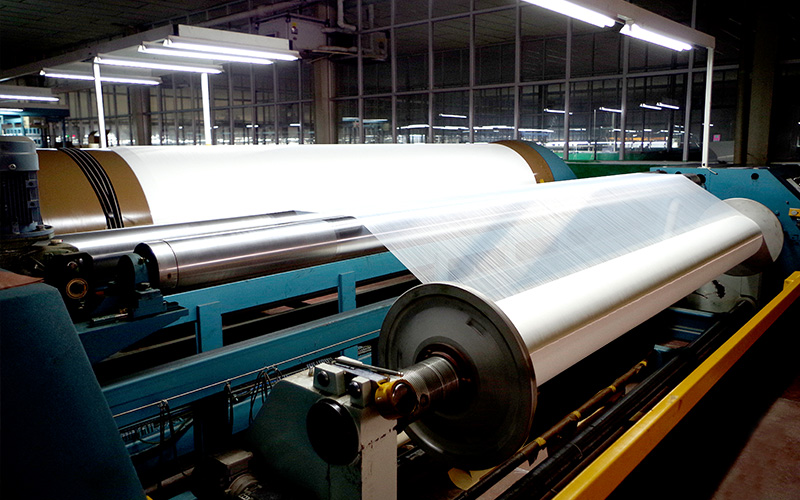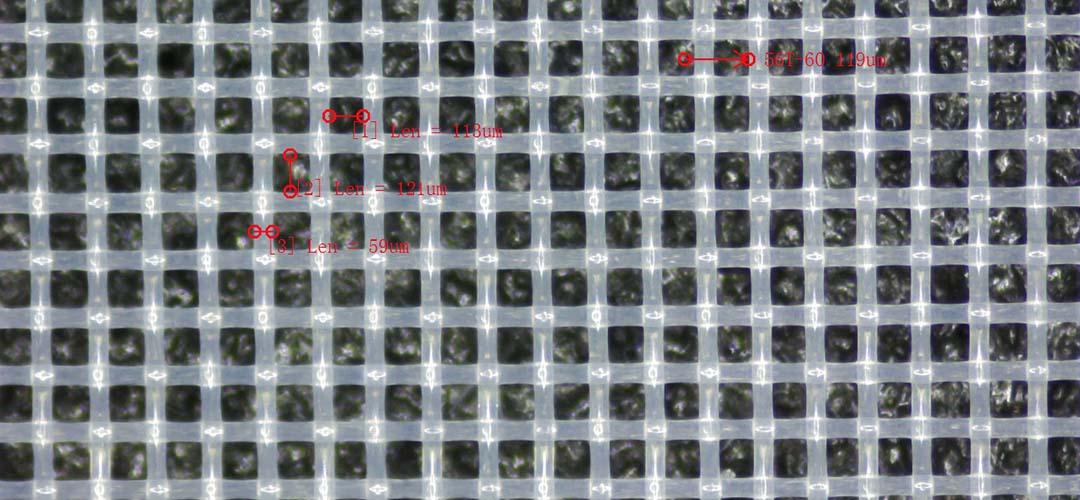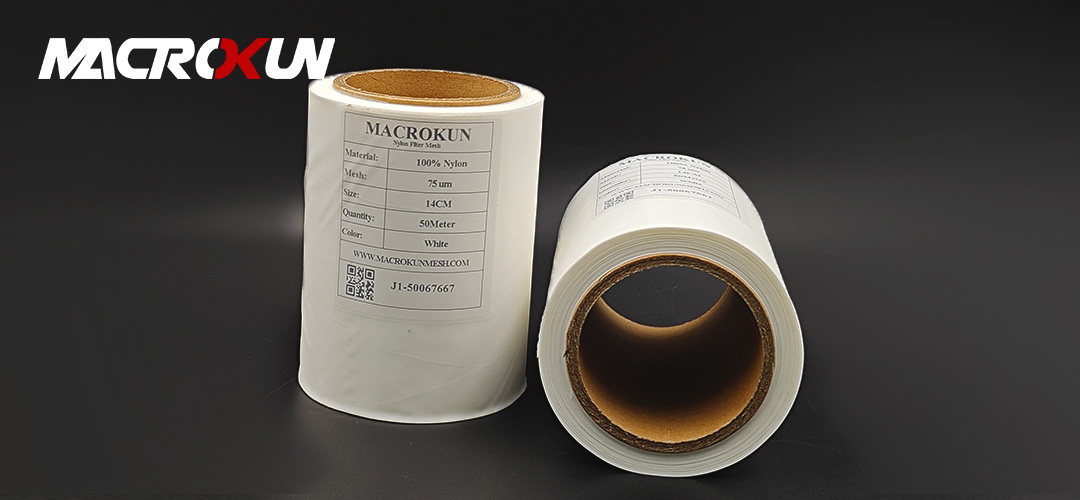Fine filtration is a crucial process in many industries, including pharmaceuticals, food and beverage, and water treatment. The goal of fine filtration is to remove particles and impurities from a liquid or gas stream, ensuring that the final product meets the required quality standards. One of the most effective materials for fine filtration is 50 micron nylon mesh.
Nylon mesh is a versatile material that is known for its durability and chemical resistance. It is commonly used in filtration applications due to its ability to capture small particles while allowing liquids or gases to flow through. The 50 micron size refers to the size of the openings in the mesh, with each opening measuring 50 microns in diameter. This size is ideal for capturing particles as small as 50 microns, making it suitable for a wide range of fine filtration applications.
One of the key benefits of using 50 micron nylon mesh for fine filtration is its high efficiency in capturing small particles. The fine mesh size ensures that even the tiniest particles are trapped, resulting in a cleaner and purer final product. This is especially important in industries where product quality is paramount, such as pharmaceutical manufacturing or food and beverage production.
In addition to its high efficiency, 50 micron nylon mesh is also easy to clean and maintain. The nylon material is resistant to chemicals and can withstand repeated cleaning without losing its filtration properties. This makes it a cost-effective option for fine filtration applications, as the mesh can be reused multiple times before needing to be replaced.
Another advantage of using 50 micron nylon mesh for fine filtration is its versatility. The mesh can be used in a variety of filtration systems, including filter bags, filter cartridges, and filter screens. This flexibility allows for easy integration into existing filtration processes, making it a convenient choice for industries looking to improve their filtration efficiency.
Furthermore, 50 micron nylon mesh is available in a range of sizes and configurations to suit different filtration requirements. Whether you need a small filter screen for laboratory testing or a large filter bag for industrial-scale production, there is a nylon mesh option that will meet your needs. This customization ensures that you can achieve the desired level of filtration for your specific application.
Overall, the benefits of using 50 micron nylon mesh for fine filtration are clear. Its high efficiency, ease of maintenance, versatility, and customization options make it an excellent choice for industries that require precise and reliable filtration. By investing in quality nylon mesh, businesses can improve the quality of their products, reduce downtime, and increase overall efficiency in their filtration processes.
Fine Filtration Simplified with 50 Micron Nylon Mesh

When it comes to filtration, having the right mesh size is crucial to achieving the desired level of filtration. One popular option for fine filtration is 50 micron nylon mesh. This type of mesh is known for its durability, flexibility, and ability to capture small particles effectively. However, with so many options available on the market, it can be overwhelming to choose the right 50 micron nylon mesh for your specific filtration needs.
To simplify the process, it is important to consider the material of the mesh. Nylon is a popular choice for filtration due to its strength and resistance to chemicals and abrasion. When choosing a 50 micron nylon mesh, make sure to select a high-quality material that can withstand the demands of your filtration process.
Another important factor to consider is the weave of the mesh. The weave determines the level of filtration and flow rate of the mesh. For fine filtration, a tight weave is essential to capture small particles effectively. Look for a 50 micron nylon mesh with a uniform weave that can provide consistent filtration results.
In addition to the material and weave, it is also important to consider the size and shape of the mesh. The size of the mesh refers to the diameter of the individual strands, while the shape refers to the configuration of the strands. For fine filtration, a smaller mesh size and square shape are ideal for capturing small particles efficiently.
When choosing a 50 micron nylon mesh, it is important to consider the specific requirements of your filtration process. If you are filtering liquids, a mesh with a higher flow rate may be more suitable to prevent clogging. On the other hand, if you are filtering solids, a mesh with a tighter weave may be necessary to capture fine particles effectively.
It is also important to consider the temperature and pressure requirements of your filtration process. Some 50 micron nylon meshes are designed to withstand high temperatures and pressures, making them suitable for demanding filtration applications. Make sure to choose a mesh that can handle the conditions of your filtration process to ensure optimal performance.
When selecting a 50 micron nylon mesh, it is important to consider the compatibility with your filtration equipment. Some meshes are designed to fit specific filtration systems, so make sure to choose a mesh that is compatible with your equipment to avoid any compatibility issues.

In conclusion, choosing the right 50 micron nylon mesh for your filtration needs can be simplified by considering the material, weave, size, shape, requirements, and compatibility with your filtration equipment. By taking these factors into account, you can ensure that you select a mesh that can provide efficient and effective filtration results for your specific application.
Fine filtration plays a crucial role in various industries, ensuring the purity and quality of products by removing unwanted particles and contaminants. One of the most effective materials for achieving this level of filtration is 50 micron nylon mesh. This versatile mesh is widely used across multiple applications due to its unique properties, including durability, chemical resistance, and ease of cleaning. As we explore the common applications of fine filtration using 50 micron nylon mesh, it becomes evident how integral this material is to maintaining high standards in diverse fields.
In the food and beverage industry, 50 micron nylon mesh is frequently employed for filtering liquids, such as juices, oils, and sauces. The mesh effectively captures solid particles, ensuring that the final product is free from impurities that could affect taste, texture, or safety. For instance, during the production of fruit juices, the mesh is used to separate pulp and seeds from the liquid, resulting in a smoother and more appealing product. Additionally, in the brewing process, this mesh aids in the filtration of hops and other solids, contributing to a clearer and more refined beer. The ability to withstand high temperatures and various cleaning agents makes nylon mesh an ideal choice for these applications, as it can be reused multiple times without significant degradation.
Moreover, the pharmaceutical industry also benefits from the use of 50 micron nylon mesh in its filtration processes. In this sector, maintaining sterility and purity is paramount, as even the smallest contaminants can compromise the efficacy of medications. The nylon mesh is utilized in the filtration of active pharmaceutical ingredients (APIs) and excipients, ensuring that the final formulations are free from particulate matter. Furthermore, the mesh is often employed in the preparation of sterile solutions, where it acts as a barrier to bacteria and other microorganisms. The reliability of 50 micron nylon mesh in these critical applications underscores its importance in safeguarding public health.
In addition to food and pharmaceuticals, the environmental sector utilizes 50 micron nylon mesh for water treatment and filtration. This application is particularly significant in the context of wastewater management, where the mesh is used to remove suspended solids and other contaminants from effluent before it is released back into the environment. By effectively filtering out particles, the nylon mesh helps to protect aquatic ecosystems and ensures compliance with environmental regulations. Furthermore, in aquaculture, this mesh is employed to maintain water quality by filtering out debris and uneaten feed, thereby promoting healthier fish populations.

Another noteworthy application of 50 micron nylon mesh is in the field of industrial processes, where it is used for the filtration of paints, coatings, and inks. In these scenarios, the mesh serves to eliminate clumps and impurities that could adversely affect the final product’s appearance and performance. By ensuring a smooth and consistent application, the nylon mesh contributes to the overall quality and durability of coatings and inks, which is essential for various manufacturing processes.
In conclusion, the common applications of fine filtration using 50 micron nylon mesh span a wide range of industries, including food and beverage, pharmaceuticals, environmental management, and industrial processes. Its effectiveness in removing unwanted particles while maintaining the integrity of the filtered materials highlights its significance in ensuring product quality and safety. As industries continue to prioritize cleanliness and efficiency, the role of 50 micron nylon mesh in fine filtration will undoubtedly remain vital.
Pre: Nylon Filter Mesh Materials: High-Performance and Durable Choices
Next: Nylon Filter Mesh Types: Tailored Solutions for Every Application

MACROKUN has established long-term and stable cooperative relations with many transportation companies such as China Post, DHL, FEDEX, USPS, UPS, etc. Of course, MACROKUN can also provide air and sea transportation. The powerful logistics system enables all MACROKUN'S Printing Mesh, Filter Mesh and Filter Bags and so on to be easily and efficiently transported to any place. For quotes and inquiries, please email our sales team.





